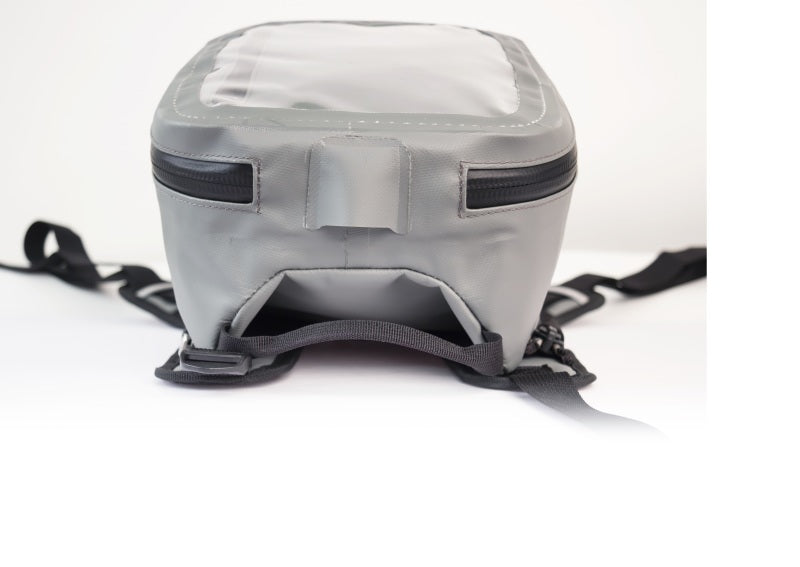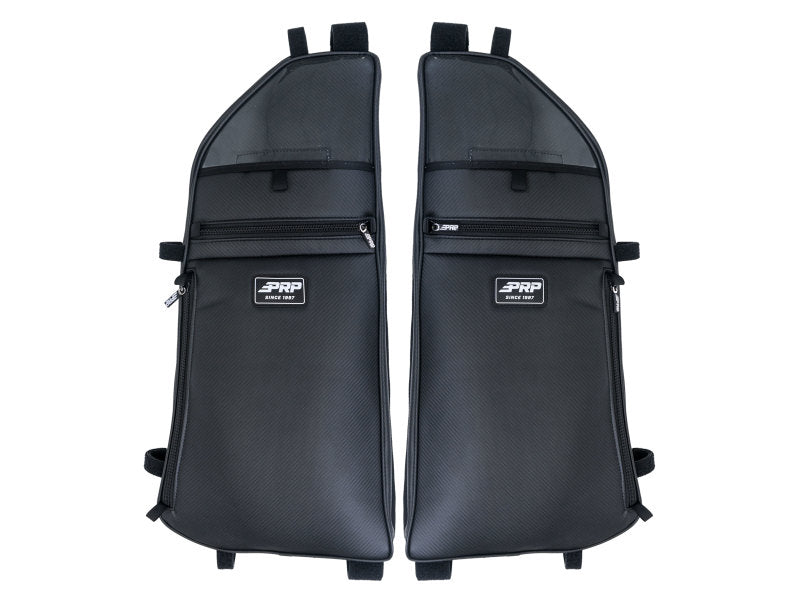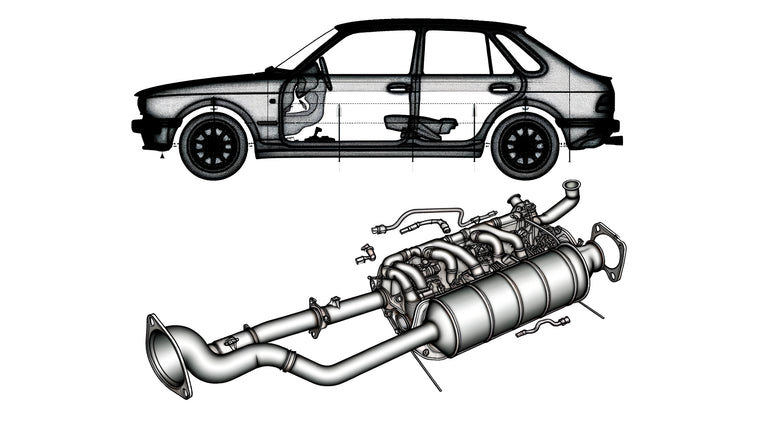The exhaust system starts at the engine, where the exhaust manifold collects gases from the engine's cylinders. This part is usually made of cast iron or metal tubes and is super important for the car's performance and for keeping the air clean.
Next, there's a catalytic converter which uses special metals like platinum to change harmful gases into less harmful ones.
Then, the stainless steel exhaust pipes take these gases away from the engine. This helps the engine work better and gives more power to your car. There are also parts called resonators and a muffler that work together to make the car quieter and the ride smoother.
At the end of the system is the tailpipe, which sends the final gases out into the air, making sure they're clean and not bad for the environment. It's really important to check these parts regularly to keep your car running well and not harming the air.
So, knowing all the parts of your exhaust system can help you keep your car in great shape and cut down on pollution.
Key Takeaways
- Exhaust manifold collects gases from engine cylinders.
- Catalytic converter converts harmful gases into safer ones.
- Exhaust piping moves hot gases to tailpipe.
- Resonators and mufflers reduce engine noise.
- Tailpipe directs gases away from car, keeping air clean.
Exhaust Manifold Overview
The exhaust manifold is a key part of your car's engine. It takes all the exhaust gases from the engine cylinders and sends them out through one main exit. This helps the car run smoothly and keeps it from polluting the air too much. The manifold can be made from different materials like cast iron or tubes, and each type has its own benefits in terms of lasting longer and handling heat better.
The design of the manifold is really important for making sure the exhaust gases flow out without any trouble. It connects to the engine with something called flange connectors. In some cars, the manifold and the catalytic converter are one piece.
The catalytic converter cleans up the gases, so less pollution goes into the air. This shows just how crucial the exhaust manifold is for both the car's performance and for protecting the environment.
Role of Catalytic Converter
Catalytic converters are super important for keeping our air clean. They're a key part of a car's exhaust system and work like magic to turn bad gases like carbon monoxide and nitrogen oxides into safer stuff like water, carbon dioxide, and nitrogen. This happens because they use special metals called platinum, palladium, and rhodium to start chemical reactions.
These reactions change harmful gases into less harmful ones, helping cars meet important emission rules. Making sure catalytic converters work right is crucial not just for the car's performance but also for keeping our environment clean.
Understanding Exhaust Piping
Exhaust pipes help move hot gases from the engine to the tailpipe so they can safely leave the car. These pipes are usually made of stainless steel because it's strong and can handle heat well. The size and shape of the pipes are important because they affect how well the gases flow, which influences how the engine performs.
Having the right size pipes with smooth curves helps the gases get out fast, which keeps the engine running well. If the pipes are bent or damaged, though, it can make the engine less efficient and increase pollution.
The exhaust pipes also help control pollution by moving the hot gases through the exhaust system and away from the engine. It's important to keep the exhaust pipes in good shape to make sure the engine works well and to help protect the environment.
Importance of Resonators
Resonators are super important for making your car quieter and more comfortable to drive. They work with the muffler to cut down on noise by targeting specific sound waves that cause loud or annoying sounds. This means no more droning sounds when you're driving, making your rides smoother and more enjoyable.
Resonators help your car sound just right and keep it running smoothly. They make sure that when you upgrade your car's exhaust system, you really feel and hear the difference! So, resonators are key to a better driving experience by lowering noise and making sure your car sounds great.
Muffling Sound With Mufflers
Mufflers are important parts of a car's exhaust system that help quiet down engine noise. They work by redirecting and absorbing sound waves, using materials that soak up sound. This not only keeps the noise down to meet rules about loudness but also makes driving more comfortable.
Mufflers come in different styles that can change how loud or soft your car sounds. It's really important to keep your muffler in good shape. Make sure to regularly check it for any damage or rust, and fix any leaks right away. This helps avoid a noisy car and keeps your drives peaceful. Remember, using the right muffler and taking care of it makes your driving experience much better!
Tailpipe Functions Explained
Tailpipes are super important because they help direct all the exhaust gases away from your car. This is crucial because it makes sure these gases don't get inside where we sit, keeping us safe and healthy. Tailpipes play a key role in keeping the air clean by pushing out the car's exhaust properly.
You'll find tailpipes in different shapes and styles, which not only help the car run better but also make it look cooler.
It's really important to keep an eye on your tailpipe and make sure it's in good shape. Regular checks help avoid problems like leaks or rust, which can mess up how your car performs and increase pollution. Taking good care of your tailpipe helps your car run smoothly and keeps our air cleaner.
Maintenance Tips for Exhaust Systems
Regular maintenance of your car's exhaust system is crucial for safety, performance, and the environment. A well-maintained exhaust system can help reduce harmful emissions, improve fuel efficiency, and prevent dangerous gases from entering your vehicle.
Follow these simple steps to keep your exhaust system in top condition.
Step 1: Inspect the Exhaust Manifold Check the exhaust manifold regularly for any cracks or leaks. A broken manifold can allow dangerous gases like carbon monoxide to enter your car, posing a serious safety risk.
Step 2: Check the Catalytic Converter Ensure the catalytic converter is functioning properly, as it plays a critical role in converting harmful emissions into safer ones. A malfunctioning converter can lead to increased pollution and decreased fuel efficiency.
Step 3: Inspect the Muffler and Resonator Check the muffler and resonator to ensure they are in good condition. These components help reduce noise levels and maintain a smooth engine performance.
Step 4: Check the Exhaust Pipes and Connections Verify that the exhaust pipes are securely connected and clear of any blockages. This will help your engine run smoothly and prevent any performance issues.
Step 5: Inspect the Tailpipe Regularly inspect the tailpipe for signs of rust or holes, which can lead to exhaust leaks and environmental damage.
By following these simple steps, you can ensure your car's exhaust system is running efficiently, reducing harmful emissions and keeping you and your passengers safe on the road.
Frequently Asked Questions
What Is the Pipe Called That Connects to the Exhaust Manifold?
The pipe that connects to the exhaust manifold is called the downpipe. It helps keep the exhaust moving smoothly so the engine works well. Make sure it's in good shape to avoid exhaust leaks.
What Comes After the Exhaust Manifold?
After the exhaust manifold, the catalytic converter cleans up the gases. Then the gases go through pipes, a resonator reduces noise, and finally, the muffler also helps quiet the noise. Each part helps control pollution and noise.
Does the Exhaust Connect to the Manifold?
Yes, the exhaust system does connect to the manifold. This is important for the car to run smoothly and keep the air clean. It helps the car work better and stay in good shape.
What Are the Six Parts of the Exhaust System?
The six parts of the exhaust system are the exhaust manifold, catalytic converter, muffler, resonator, exhaust pipes, and tailpipe. The muffler quiets the engine sound, the catalytic converter cleans up the gases, and the tailpipe lets out the clean gases.





